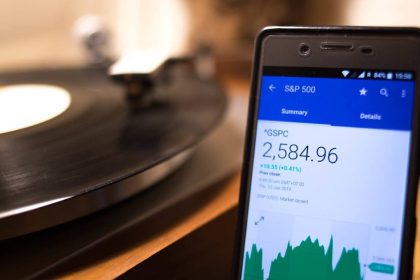Luis Alvarez/GettyImages; Illustration by Hunter Newton/Bankrate
Key takeaways
- There is no minimum credit score required to buy a car, but most lenders have minimum requirements for financing.
- Most borrowers need a FICO score of at least 661 to get a competitive rate on an auto loan.
- If you have a low credit score, you may still qualify, but you should consider building your score before you start searching for loans.
Before you head to the dealership, consider how your credit score will affect how much you are able to spend. Lenders use your credit score as an indication of how likely you are to repay a loan. This means that the higher your credit score, the more favorable your interest rate and terms will be.
In general, you’ll need a FICO credit score of at least 661 to qualify for a traditional auto loan, although there are lenders that offer bad credit auto loans. Because interest rates remain high, securing a subprime auto loan may be more difficult — and while it is possible, expect to pay a premium.
What credit score is needed to buy a car?
<quote> The average credit score was 748 for a new car and 684 for a used car, according to data from Experian.
There is no official minimum credit score required to buy a car, but most lenders have minimum standards for financing. Your credit score demonstrates your likelihood of repaying a loan, which is why it is one of the main tools lenders use when determining if you qualify for a car loan. Generally speaking, the higher your credit score, the more likely you are to be approved for an auto loan and receive a competitive interest rate.
This table illustrates loan risk distribution, which is the percentage of people in each credit band auto lenders chose to finance. You are much more likely to be approved for an auto loan with a score of 600 or above because lenders have low risk tolerance for borrowers.
| New car financing | Used car financing | All car financing | |
|---|---|---|---|
| Super prime (781-850) | 47.44% | 22.34% | 30.75% |
| Prime (661-780) | 35.62% | 35.26% | 35.38% |
| Nonprime (601-660) | 10.87% | 18.35% | 15.84% |
| Subprime (501-600) | 5.61% | 20.69% | 15.64% |
| Deep subprime (300-500) | 0.46% | 3.36% | 2.39% |
Those with credit scores under 500 accounted for just 2.39 percent of all auto loans in the first quarter of 2025. Scores between 501 and 660 fared better and accounted for over 30 percent of auto loan originations.
Auto loan interest rates by credit score
When you apply for a car loan, the average auto loan rate you receive will primarily be based on your credit score.
| Credit score | New cars | Used cars |
|---|---|---|
| Super prime (781-850) | 5.18% | 6.82% |
| Prime (661-780) | 6.70% | 9.06% |
| Nonprime (601-660) | 9.83% | 13.74% |
| Subprime (501-600) | 13.22% | 18.99% |
| Deep subprime (300-500) | 15.81% | 21.58% |
Borrowers in the super prime range are more likely to qualify for auto loans with below-average rates. That said, there are bad credit auto loans available, but the cost of financing a car may be significantly higher.
How credit scores affect auto loans
Lenders use your credit score, along with other factors like your income and debts, to determine how likely you are to repay a loan. The higher your credit score, the less risk lenders think you pose. This means that you are more likely to receive more competitive auto loan rates and better terms.
- Better interest rates. A good to excellent credit score — either in the prime or super prime category — will help you secure a competitive interest rate on your car loan.
- Smaller down payment. With the added layer of good credit, you can likely avoid making a large down payment, although it’s a good idea to put down as much as you can afford to reduce overall costs.
- Higher chance of approval. A higher credit score means that lenders view you as less of a risk. The vast majority of car loans go to those with scores above 661.
Do auto loans use FICO or VantageScore?
Lenders may use both your FICO score and VantageScore to determine your eligibility for an auto loan. Some lenders may also use your FICO Auto Score, which is focused specifically on your ability to pay back debts, and these scores range from 250 to 900.
Bankrate tip
It is possible for lenders to use a different type of credit scoring metric. If you are unsure, reach out to your prospective lender to determine what measure will be used.
How to get a car with bad credit
It might be harder to secure a low interest rate, but there are still ways to get a car loan with bad credit, even if it means potentially higher rates.
- Work to improve your credit. If patience is on your side, using credit-building strategies can mean money saved in the future. Pay down your debts and check for errors on your credit report that may be lowering your score.
- Focus on your down payment. When you apply for a car loan with bad credit, a down payment offers multiple benefits. It may make you appear less risky to your lender, and you’ll need to borrow less, which will also help improve your chances of being approved.
- Look for subprime auto loans. Subprime auto loans are viewed as a risk to lenders, but they are designed for people with bad credit. Expect high interest rates and less favorable terms, but you do have options.
- Apply for preapproval. If possible, apply for preapproval before you head to the dealership. This will help you compare rates and determine how much you can afford when you’re not in a high-pressure sales environment.
If you have enough cash to cover the transaction, you can avoid the entire financing process, but for many, this is nearly impossible. The average cost of a new car was $48,699 in April, according to a report from KBB, and the average cost for a used car was 25,547.
Unless you need a car in the near future, it will save you money if you focus on building your credit score and saving for a large down payment rather than jumping into an expensive auto loan.
Bottom line
Your credit score serves as an important indicator for lenders, but there is no set minimum requirement to buy a car. If you are on the lower end of the credit spectrum, you can find a second-chance auto loan. You can also refinance to a lower rate in the future once your credit score improves.
Read the full article here
















